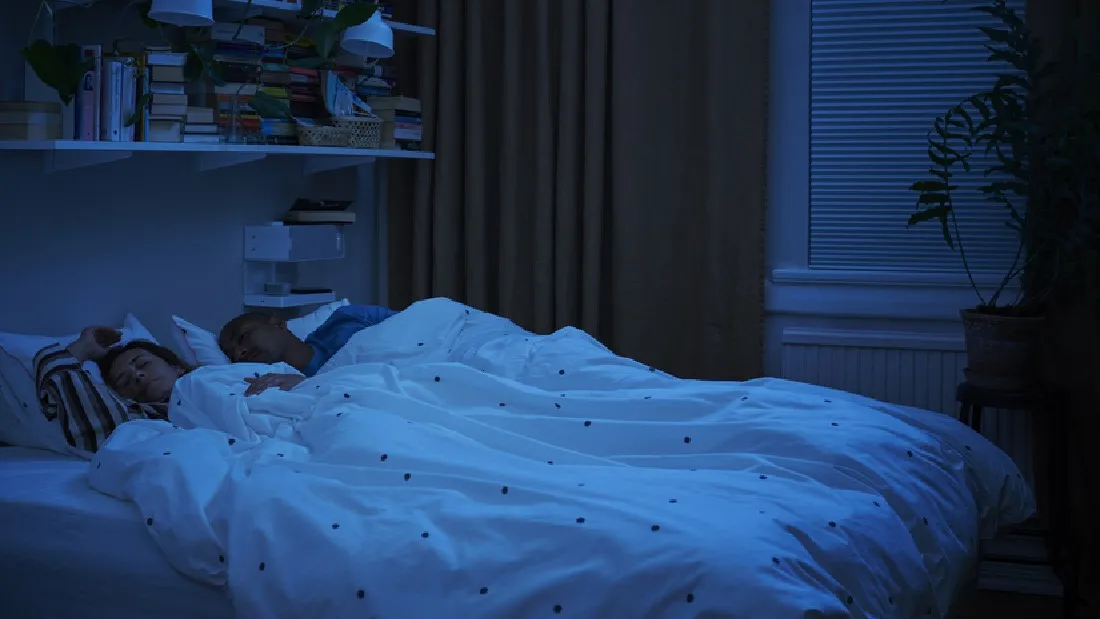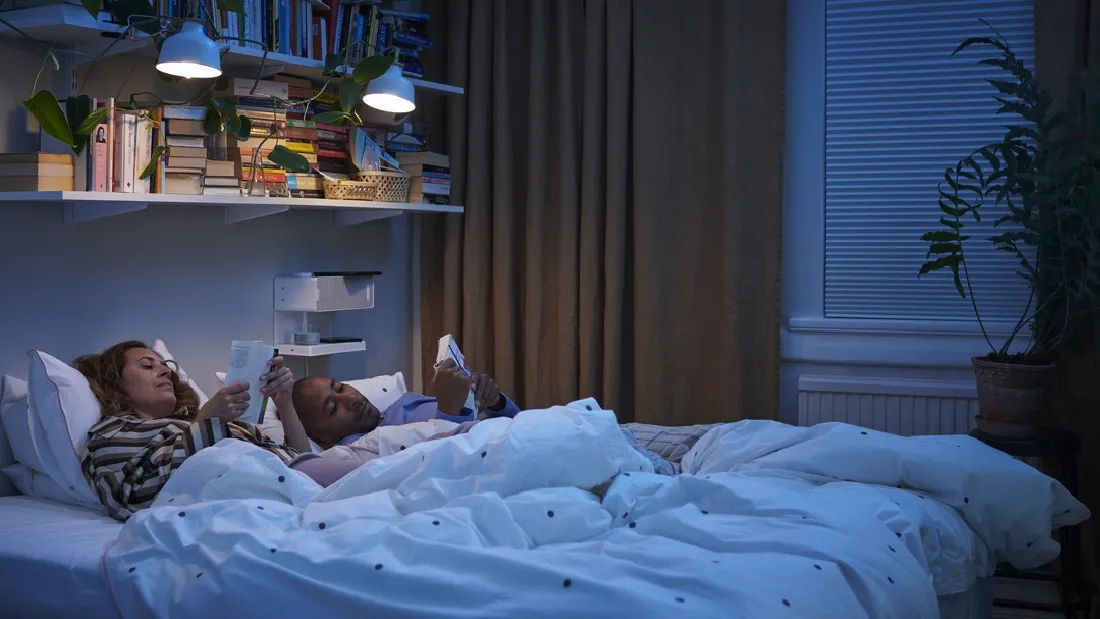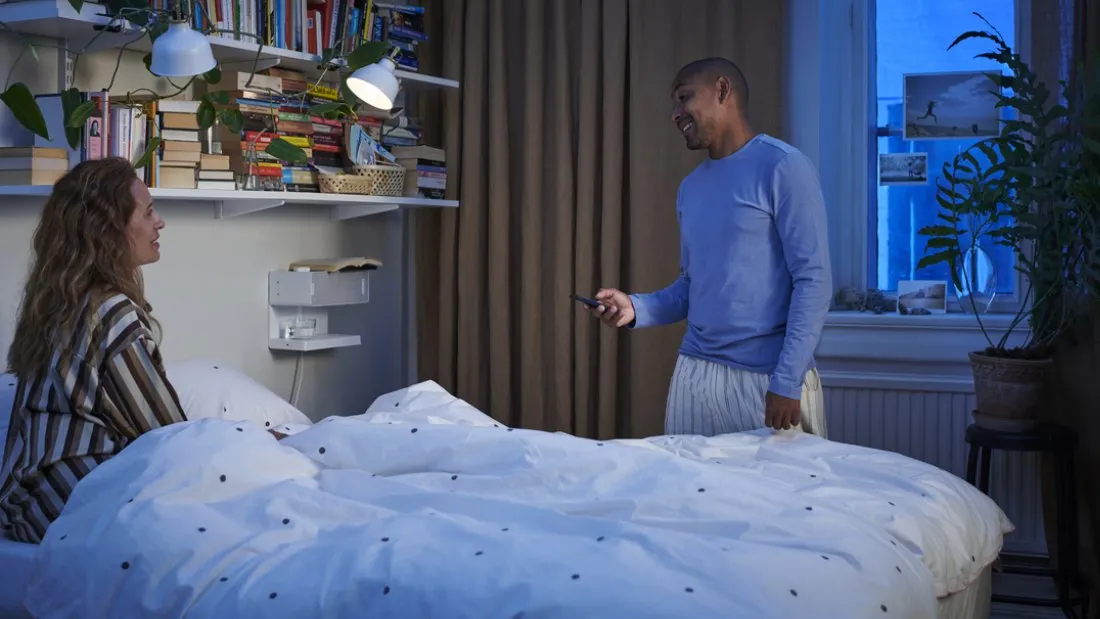A good night's sleep is the foundation of optimal health, and one often overlooked factor is our sleep environment.
The benefits of sleeping in the dark have become increasingly popular in the health world. Sleeping in complete darkness gives your body and mind a chance to truly rest and restore.
Sleeping in a dark environment has numerous benefits for our health and well-being. A dark and quiet bedroom creates a conducive atmosphere for restful sleep.
When you sleep with the lights on, your brain remains active and finds it difficult to enter deep sleep stages.
So, let's uncover the secrets behind a good night's sleep by turning off the lights, as explained below.
Key Benefits of Sleeping in the Dark
A dark sleep environment is the first step towards quality sleep. But what are the specific benefits we can gain from this habit?
In this section, we'll explore the primary benefits of sleeping in the dark, from increased melatonin production to reduced risk of chronic diseases.
Improves Sleep Quality
Have you ever found it difficult to fall asleep or experienced frequent nighttime awakenings? One often overlooked factor is the lighting conditions in your bedroom.
Our bodies have an internal biological clock that is highly sensitive to light. As day turns to night, our bodies naturally produce the hormone melatonin, often called sleep hormone.
This hormone signals to the body that it's time to rest. However, the habit of sleeping with the lights on can disrupt melatonin production. Artificial light, especially the blue light emitted from electronic devices like phones and laptops, can trick our brains into thinking it's still daytime.
Therefore, turning off all lights, including nightlights, is best so your body can prepare for deep, restorative sleep.
Reduces Health Risks
Sleep is a time for the body to rest and repair itself. But did you know that light exposure during sleep can interfere with the body's regeneration process?
Exposure to light can inhibit the production of melatonin, which is crucial for regulating the sleep-wake cycle. When melatonin production is disrupted, our sleep quality declines.
To maintain optimal health, it's important to make it a habit to sleep in complete darkness. By reducing light exposure during sleep, we allow our bodies to naturally produce melatonin.
This not only helps us sleep better but can also reduce the risk of various diseases such as obesity, diabetes, heart disease, and mood disorders.
Improves Psychological Well-being
Sleeping in the dark is not just a habit; it also has a significant impact on our mental health. Sleeping in a dark room can help reduce the risk of various mental health issues such as depression and anxiety.
When we sleep in complete darkness, our brains can rest better and process the information and emotions we've experienced throughout the day.
Additionally, people who sleep in the dark tend to experience higher quality sleep and feel more refreshed. As a result, we're better equipped to handle daily activities and have higher productivity.
Falls Asleep Faster
Does your child often have trouble falling asleep? One simple way to help your child fall asleep faster is to turn off the lights before bedtime.
When we turn off the lights, the room becomes dark, signaling to the body that it's time to rest. Sleeping in the dark helps the body produce melatonin, which makes us feel sleepy.
A dark and quiet room is essential for creating a comfortable sleep environment. Turning off the lights before bedtime will make it easier for children to fall asleep quickly. This will help children feel relaxed and ready for a restful night's sleep.
Improves Focus After Waking Up
One simple way to improve focus is to turn off the lights before bed. When we sleep with the lights on, our sleep cycle can be disrupted by the light. This can keep our brains active and prevent us from entering deep sleep stages.
As a result, when we wake up, we may feel less refreshed and have difficulty concentrating. Sleeping in the dark not only helps improve focus but also protects our eye health.
When we're exposed to light throughout the night, our eyes continue to work and experience strain. Of course, healthy eyes require adequate rest to see clearly and focus throughout the day.
Related Article: Modern Minimalist Bedroom Design for Small Family Homes
Additional Tips for Maintaining Sleep Quality



